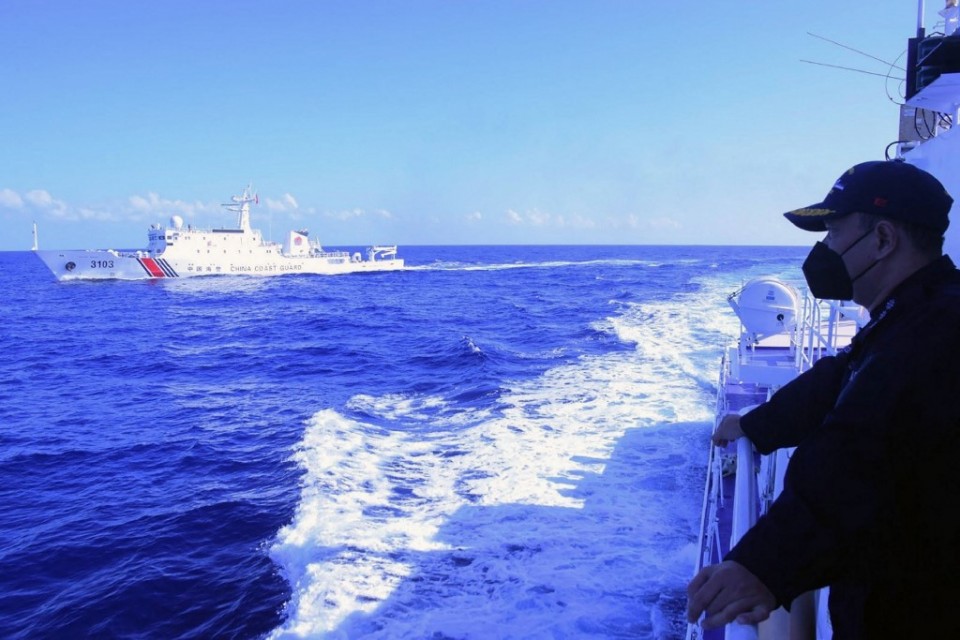DFA says China’s fishing moratorium has “no basis in law” and violated PHL sovereign rights

(Eagle News) – The Philippine government, through the Department of Foreign Affairs (DFA), has filed a diplomatic protest against China for its unilateral fishing moratorium that was first imposed on May 1 this year in parts of South China Sea.
The DFA filed the diplomatic protest against the People’s Republic of China’s “unilateral imposition of a three-and-half-month fishing moratorium in areas of the South China Sea north of the 12 degrees North latitude.” The DFA said the moratorium “has no basis in law” and breached Article 56 of the 1982 United Nations Convention on the Law of the Sea (UNCLOS) in relation to the country’s sovereign rights.
China’s fishing ban is expected to last until August 16, 2022.
“In a diplomatic note dated 30 May 2022, the DFA conveyed its protest to the moratorium, which covers areas in the West Philippine Sea over which the Philippines has sovereignty, sovereign rights, and jurisdiction,” the DFA said.
The Philippines said China’s actions “breached Article 56 of the 1982 United Nations Convention on the Law of the Sea (UNCLOS) with respect to the Philippines’ sovereign rights over the living resources of its exclusive economic zone.”
The DFA cited Paragraph 716 of the final and binding Award on the South China Sea Arbitration that was rendered on July 12, 2016.
The DFA said “China, by promulgating its moratorium on fishing in the South China Sea” breached Article 56 of the UNCLOS since it was “without exception for areas of the South China Sea falling within the exclusive economic zone of the Philippines and without limiting the moratorium to Chinese flagged vessels.”
“The DFA reiterated its continuing protest of China’s annual practice of declaring a fishing ban over areas that extend far beyond China’s legitimate maritime entitlements under the 1982 UNCLOS,” the DFA said in a statement.
“The declaration of a moratorium on fishing that extends to the West Philippine Sea has no basis in law, and undermines the mutual trust, confidence, and respect that should underpin bilateral relations, as affirmed most recently by President Rodrigo R. Duterte and President Xi Jinping during their Telesummit on 08 April 2022,” it said.
-PHL to China: Comply with int’l law obligations-
The Philippine government also called on China to “to comply with its obligations under international law, particularly the 1982 UNCLOS and the final and binding Award on the South China Sea Arbitration.”
It also asked the Chinese government to “cease and desist from the conduct of illegal actions that violate the Philippines’ sovereignty, sovereign rights, and jurisdiction in its maritime zones; and adhere to its commitments under the 2002 Declaration on the Conduct of Parties in the South China Sea (DOC).”
-President-elect Marcos Jr., vows to uphold PHL maritime coastal rights-
Last week, the Philippines’ president-elect Ferdinand Marcos Jr. said he he would uphold an international ruling against Beijing over the disputed South China Sea, insisting he would not let China trample on Manila’s maritime rights.
China claims almost all of the resource-rich waterway, through which trillions of dollars in trade passes annually, with competing claims from the Philippines, Brunei, Malaysia, Taiwan and Vietnam.
Beijing has ignored a 2016 decision by The Hague-based Permanent Court of Arbitration that declared its historical claim to be without basis.
In his strongest comments yet on the longstanding source of tensions between the two nations, Marcos Jr said he would not “allow a single millimeter of our maritime coastal rights to be trampled upon”.
“We have a very important ruling in our favour and we will use it to continue to assert our territorial rights. It is not a claim. It is already our territorial right,” he told selected local media.
“We’re talking about China. We talk to China consistently with a firm voice.”
But he added: “We cannot go to war with them. That’s the last thing we need right now.”
Chinese foreign ministry spokesman Wang Wenbin said Beijing’s position on the international ruling had not changed.
“China is willing to continue communication and dialogue with the Philippines to appropriately handle differences, and together uphold the peace and stability of the South China Sea region,” Wang said.
(Eagle News Service with an Agence France Presse report)







